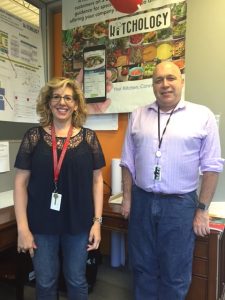How the State of Maryland Can Help
You Finance Your Business
If you’re looking for money to grow your business, the state of Maryland is a good place to start. The Maryland Department of Commerce Office of Finance Programs provides the business community nuancing and incentive-based solutions for economic development projects to maximize job creation and retention, leverage capital investment, and encourage growth in targeted business sectors and specific geographic areas throughout the state. The state offers financial support in the form of direct loans, grants, and investments to a variety of businesses.
Economic Development Opportunities Fund (Sunny Day)
The Sunny Day fund supports extraordinary economic development opportunities that create and retain employment as well as create significant capital investments.
Maryland Economic Adjustment Fund (MEAF)
The Maryland Economic Adjustment Fund assists business entities in the state with modernization of manufacturing operations, development of commercial applications for technology, and exploring and entering new markets.
Military Personnel and Veteran-Owned Small Business Loan Program
The state provides no-interest loans for businesses owned by military reservists, veterans, National Guard personnel and for small businesses that employ or are owned by such persons.
Small, Minority and Women-Owned Business Account – Video Lottery Terminal Fund (VLT)
The VLT Fund provides 1.5% of the proceeds from video lottery terminals (slots) that is distributed in targeted areas surrounding select Maryland casinos. At least 50% of the VLT allocations are deployed to small, minority, and women-owned businesses located within certain targeted areas of the six casinos. The other 50% is available to small, minority, and women-owned businesses located throughout Maryland.
Maryland Small Business Development Fund Authority (MSBDFA)
The MSBDFA provides financing for small businesses that are not able to qualify for financing from private lending institutions or owned by socially and economically disadvantaged persons.
State Small Business Credit Initiative (SSBCI)
A component of the federal Small Business Jobs Act of 2010, the State Small Business Credit Initiative provides direct funding for state credit enhancement programs. These funds must target an average borrower size of 500 employees or less and loans averaging $5 million.
ADVANCE Maryland
ADVANCE Maryland, in partnership with the National Center for Economic Gardening, is a program for second-stage entrepreneurs that uses a “grow from within” strategy targeting existing growth companies and offering them critical strategic information customized to their needs. This information can be key to propelling your company to its next phase of growth.
Maryland E-Nnovation Initiative Fund (MEIF)
The E-Novation Initiative Fund offers a state match to private funds raised in support of endowed chairs at Maryland’s nonprofit institutions of higher education. Under the fund, $8.5 million will be appropriated by the Governor annually from fiscal 2016 through 2021.
Maryland Economic Development Assistance Authority Fund (MEDAAF)
The MEDAAF fund is a flexible, broad-based program providing below market, fixed rate direct assistance to growth industry sector businesses, locating or expanding in priority funding areas of the state. Funding for special purpose programs include Arts & Entertainment, Brownfields, Child Care Centers and Seafood and Aquaculture.
If you are an entrepreneur looking to develop, transfer, or accelerate a technology-based product, the state has collaborators and partners that provide funding options. For more information on all of the state’s business funding opportunities, visit http://bit.ly/2eJxIXi.
Source: Maryland Department of Commerce – http://bit.ly/2eVsoz5


